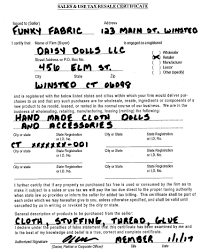
If you're interested in a solar installation for your home or business, Washington DC is the place to start. There are many types of solar installations, so there are many factors to consider when choosing a company. Learn more about the cost of solar panels and what they are like.
Solar panels are expensive
If you're thinking about converting your house to solar power, you need to know the costs involved. Washington DC offers incentives for home solar usage. These incentives will lower your overall cost of solar power in the District. There are several different types of home solar panels. All have their own costs.
Solar Renewable Energy Certificates are one of the best incentives. This credit allows you to make and convert solar electricity. You'll get a credit for every 1,000 kilowatt-hours of electricity your solar panel system produces. These credits can be used whenever you need them, and they will roll over month to month.

Exemption from the property tax
Washington DC's solar companies are eligible for the state's exemption from property taxes. This allows the solar system to be exempt from the property tax valuation of the home. A solar PV system can boost the home's value by as much as 20 times the amount it generates in electricity annually. A five-kW solar system will increase the home's worth by approximately $17,000. Installing a solar system is easier and more affordable because of the exemption from property taxes.
Washington DC solar companies can also receive federal tax credits in addition to their property tax exemption. These tax credits can be used to cover the cost of installing wind turbines or solar panels on residential or commercial properties. The federal government is committed to helping consumers save money on their energy bills.
Policy on net metering
The Net Metering Policy is a hot topic in many states. Although the policy is subject to change from state to state it allows for crediting excess generated electricity to the next billing period. The net metering policy generally allows systems up to 1MW to participate.
Net metering is a policy that rewards residents who use renewable power by giving them credits on future power bills. Washington DC is just one of 38 states to have mandatory net billing policies. The Potomac Electric Power Company in the area offers net metering to residents in all of its service areas. Some areas don't have an open circuit, so grid interconnection may not be possible.

Community solar program
Washington DC's community solar program has allowed hundreds of homeowners to put solar panels on their houses. The program allows people from all walks to go green with the support of solar energy businesses. There are many models of solar projects that can be implemented under the program's policies. These customers have the option to pay a monthly payment for electricity from solar panels. They will also receive credit on their electric bills in return.
In 2016, the District of Columbia created the Community Solar Program (CSP). It was designed to enroll thousands of low- and moderate-income households. Solar companies that provide solar panels to low-income households will also be offered incentives by the District. The goal of the program is to produce 100 percent renewable electricity by 2032.
FAQ
Is There Any Way That I Can Prepare For Negotiation Beforehand?
Yes!
There are many methods you can prepare for negotiation.
One way is to write out the terms and conditions of the agreement
What happens when one party refuses to take their side in a deal?
Failure to fulfill your obligations under the agreement can lead to the law allowing the other party to declare your promise null and sue you for damages. Damages include the amount owed in addition to interest, court costs, and legal expenses.
Who will pay for the service
Your SCA will indicate who is responsible in paying for the service. You may be able to file a claim for compensation against the court if the service provider fails to pay in full.
Statistics
- (1) Ascertain the extent to that offers are based on the payment of overtime and shift premiums; and (2) Negotiate contract prices or estimated costs without these premiums or obtain the requirement from other sources. (acquisition.gov)
- (ii) Name, address, and telephone number of each proposed first-tier subcontractor with a proposed subcontract estimated at $10 million or more. (acquisition.gov)
- Don't take their anger personally, they are mad about the situation 99% of the time. (activatemylicense.com)
- (d) Contractor disputes related to compliance with its obligation shall be handled according to the rules, regulations, and relevant orders of the Secretary of Labor (see 41 CFR60-1.1). (acquisition.gov)
- Reasonable late fees go up to 25% per year on unpaid sums. (lawdepot.com)
External Links
How To
What should a Service Agreement include?
Every business relationship should have a Service Agreement (SA). It sets out what you expect from one another and how you intend to achieve these expectations. The SA also describes when and how you expect the other side to meet its contractual obligations.
The following are key elements for a successful SA
-
The scope of work and services required by both parties.
-
Particulars of the payment terms, including delivery dates and start dates.
-
An agreed price for your project.
-
Additional costs, such as VAT, etc.
-
Whether there is any other matter that should be discussed.
-
Who will take care of the job if it goes wrong?
-
How disputes can be resolved
-
What happens if a party breaches the contract.
-
What happens if there is a dispute
-
When does the contract come into effect?
-
What happens if one party fails to perform?
-
How long do you have to pay invoices?
-
Who pays for things like travel expenses.
-
Where the money is coming from.
-
What happens if the client decides to change his mind about the project.
-
What happens if the supplier doesn't turn up.
-
Who has permission to view the site during construction
-
What happens if the customer cancels?
-
What happens if the product fails?
-
What happens if the manufacturer refuses parts?
-
What happens if your equipment breaks down?
-
What happens if the project takes longer than expected.
-
What happens if the work isn't completed within the agreed timescale?
-
What happens if the final product isn't up to expectations?
-
What happens if the cost exceeds?
-
What happens to the materials if they are not delivered on-time?
-
What happens if the material arrives damaged.
-
What happens to the products if they are not up-to-standard?
-
What happens when the job is cancelled before completion?
-
What happens if the business goes under?